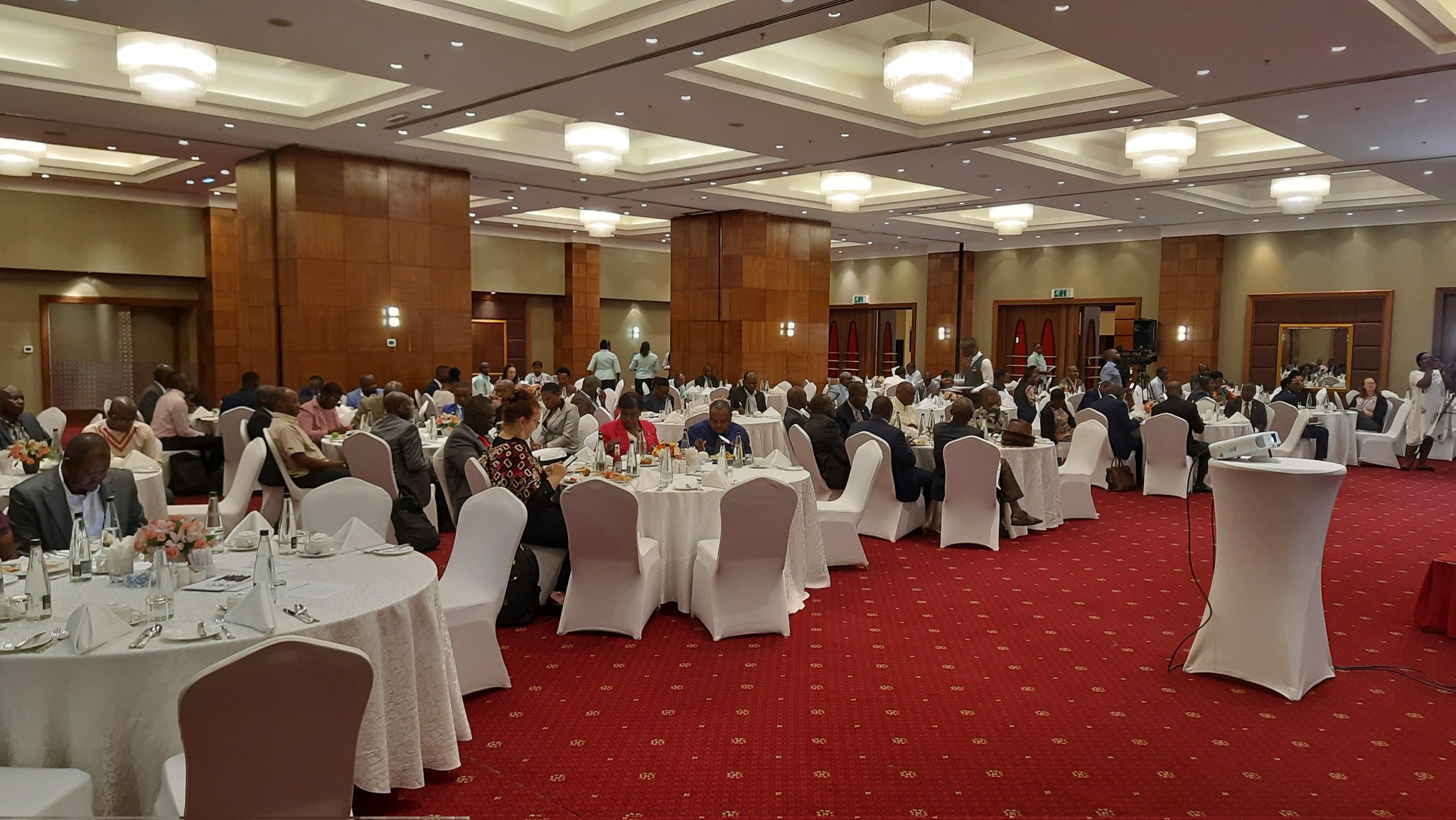Environment
Uganda Biodiversity Fund Marks 8 Years Amid Growing Environmental Challenges
The tragedy at Kiteezi was inevitable, as the area had been condemned as a landfill for some time and exceeded its capacity many years ago. However, due to the lack of alternatives, city authorities continued using it.
The Executive Director of the National Environment Authority, Akankwasah Barirega (PhD), says that Uganda’s biggest problem is that waste is treated as waste and landfilled. He explained that this issue affects not only Kampala but all cities across the country.
Akankwasah was speaking on Monday during the event celebrating the 8th anniversary of the Uganda Biodiversity Fund (UBF) following its inception in 2016. UBF provides funding to NGOs, government authorities, private sector organizations, community-based organizations, and civil society organizations for biodiversity conservation efforts.
According to Ivan Amanigaruhanga, the Executive Director of UBF, the fund has secured over USD 10 Million over the last eight years, which has been distributed for nature conservation.
During the event, Akankwasah, who was the keynote speaker, stressed that Uganda must fight plastics, which pose a threat to humanity’s survival. He noted that while the country is making progress in policy formulation and implementation, plastics have become a global problem, and Uganda must act quickly to address this challenge.
“The world is producing over 430 million metric tons of plastics every year. And research tells us that if we continue with business as usual, plastics will account for 19% of global greenhouse gas emissions by 2040. That’s very significant,” said Akankwasah.
He added that the world is in crisis, and humanity must act fast. “Kampala alone generates 135,000 tons of plastic waste per year. Of that, 42% is uncollected, remaining where it’s generated. Fifteen percent is collected through the value chain approach, and 43% is collected by service providers. About 21 tons are burned openly, leading to respiratory problems, increasing cancer rates, and a growing number of premature deaths.”
The NEMA Executive Director further explained that open burning of waste not only increases greenhouse gas emissions but also directly impacts air quality, affecting both those burning the waste and their neighbors.
He advised that Ugandans should move away from landfilling waste in the 21st century and instead use waste to generate wealth. Organic waste, for example, can be used to produce organic manure. “This is an opportunity for Uganda to use the abundant organic waste to generate organic fertilizer for agricultural production,” he said.
The keynote speaker also suggested that Ugandans could generate animal feed from organic waste, but the most lucrative option would be generating electricity from waste, as has been done in Ethiopia and Singapore. Other products that can be made from waste include briquettes for charcoal, biogas for cooking and lighting, and recycling plastics, glass, and wood. “In science, there is no waste; matter is not created, it is only transformed from one form to another.”
He noted that the government needs to provide proper equipment to cities and local governments to support waste sorting because the values mentioned cannot be achieved without proper sorting at the source to separate organic from non-organic waste.
In a room full of multi-stakeholders, Amanigaruhanga, the UBF Executive Director, promised that the fund would continue its mandate of securing funds to empower various key sector players.
In the last eight years, UBF has empowered 5,789 individuals through training and support in natural resource management, biodiversity conservation, sustainable agriculture, and eco-friendly business development. Impacted communities include Karamoja, Mid Albertine, and West Nile. The fund has also restored 248 hectares of wetland, 1,457.11 hectares of woodlands, and established 1,040.7 hectares of woodlots. Amanigaruhanga highlighted that UBF has established thriving ethnobotanical gardens and demonstration sites showcasing sustainable land management, climate-smart agriculture, and agroforestry practices.
Mr. David Duli, the UBF Board Chairperson, thanked their implementing partners for supporting biodiversity conservation. He noted that the fund remains dedicated to restoring natural habitats, addressing plastic pollution through innovative solutions, protecting endangered species, conserving delicate ecosystems, promoting sustainable coexistence between wildlife and human communities, and developing innovative conservation financing approaches to ensure the sustainability and impact of biodiversity conservation initiatives.
The event comes at the heels of a tragedy that struck, killing at least 22 people when Kiteezi landfill, an area used by the Kampala Capital City Authority to dispose of waste collected from the city, collapsed.
This followed heavy downpour in the early hours of Saturday morning. The death toll is expected to rise as the rescue mission continues.



























